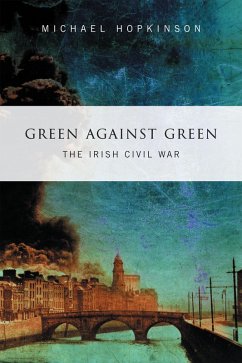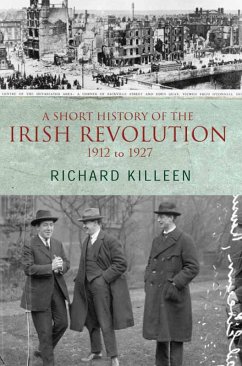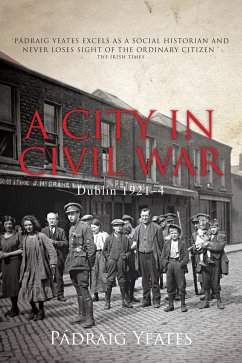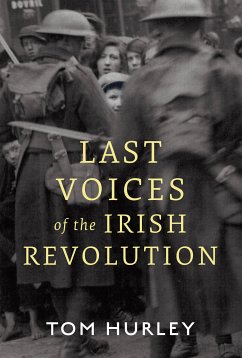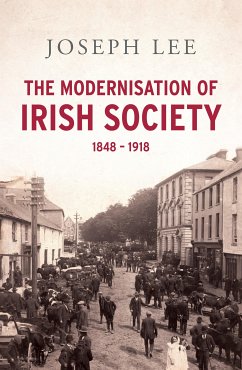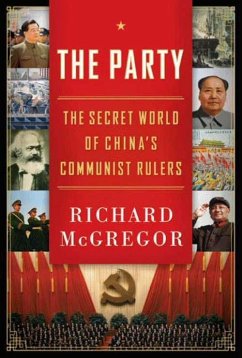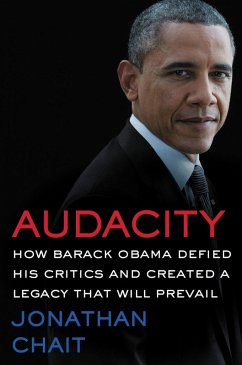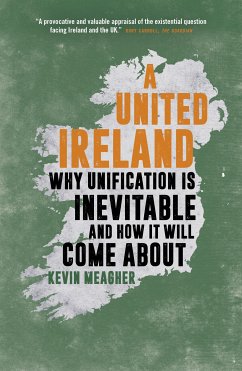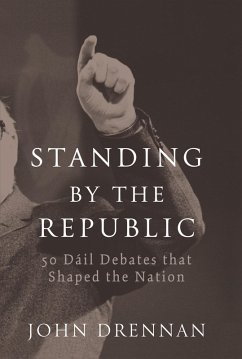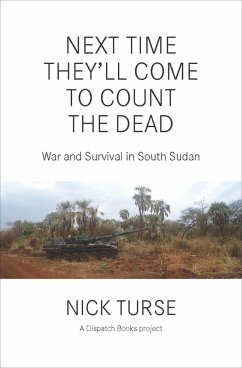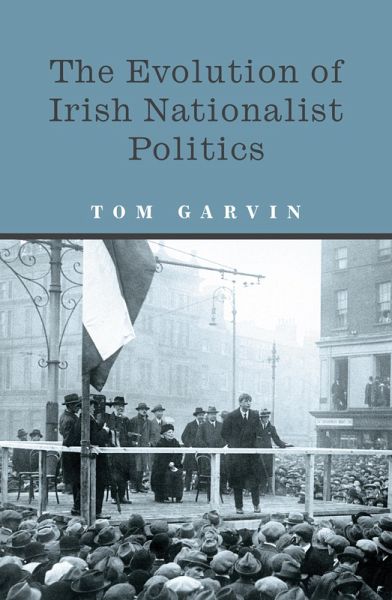
The Evolution of Irish Nationalist Politics (eBook, ePUB)
Irish Parties and Irish Politics from the 18th Century to Modern Times

PAYBACK Punkte
0 °P sammeln!
Professor Tom Garvin's classic work studies the growth of nationalism in Ireland from the middle of the eighteenth century to modern times. It traces the continuity of tradition from earlier organisations, such as the United Irishmen and the agrarian Ribbonmen of the eighteenth century, through the followers of Daniel O'Connell, the Fenians and the Land League in the nineteenth century to the Irish political parties of today, including Sinn Féin, Fianna Fáil, Labour Party and Fine Gael. The dual nature of Irish nationalism is shown in sharp focus. Despite the secular and liberal leanings of ...
Professor Tom Garvin's classic work studies the growth of nationalism in Ireland from the middle of the eighteenth century to modern times. It traces the continuity of tradition from earlier organisations, such as the United Irishmen and the agrarian Ribbonmen of the eighteenth century, through the followers of Daniel O'Connell, the Fenians and the Land League in the nineteenth century to the Irish political parties of today, including Sinn Féin, Fianna Fáil, Labour Party and Fine Gael. The dual nature of Irish nationalism is shown in sharp focus. Despite the secular and liberal leanings of many Irish leaders and theoreticians, their followers were frequently sectarian and conservative in social outlook. This book demonstrates how this dual legacy has influenced the politics of modern Ireland. The Evolution of Irish Nationalist Politics: Table of Contents - Irish parties and Irish politics The Irish republic: post-colonial politics in a western European state Political culture and political organisation Geography, economics and method - The origins of Irish popular politics Roots of Irish popular nationalism The beginnings of urban radical political organisation, 1750-1800 Agrarianism, religion and revolution, 1760-1800 - The development of nationalist popular politics, 1800-48 Secret societies before the Famine: the rise of Ribbonism Political mobilisation in pre-Famine nationalist Ireland - Secret societies and party politics after the Famine The social background Electoral politics after the Famine The recrudescence of republicanism: Fenianism and the Agrarians The IRB and Irish politics after the Land War - Agrarianism, nationalism and party politics, 1874-95 Political mobilisation and the agrarian campaign The development of the Irish National League The Parnell split: the collapse of the Irish National League - The reconstruction of nationalist politics, 1891-1910 The rebuilding of the parliamentary party The rise of the Hibernians - The new nationalism and military conspiracy, 1900-16 The development of cultural nationalism and the origins of Sinn Féin Fenians, Volunteers and insurrection - Elections, revolution and civil war, 1916-23 The rise of Sinn Féin The electoral landslide of December 1918 The Republic of Ireland, 1919-23 - The origins of the party system in independent Ireland The ancestry of the Irish party system The legitimation of the state and the building of political parties - An analysis of electoral politics, 1923-48 Parties and elections in the Irish Free State Turnout, 1922-44 Sinn Féin III/Fianna Fáil Cumann na nGaedheal/Fine Gael The Labour Party The farmers' parties The break-up of the Treaty party system - The roots of party and government in independent Ireland The central place of party in Irish politics Party and the physical force tradition The evolution of the Irish state Party and government in independent Ireland - Some comparative perspectives Liberal democracy The party system in comparative perspective
Dieser Download kann aus rechtlichen Gründen nur mit Rechnungsadresse in A, B, BG, CY, CZ, D, DK, EW, E, FIN, F, GR, H, IRL, I, LT, L, LR, M, NL, PL, P, R, S, SLO, SK ausgeliefert werden.




